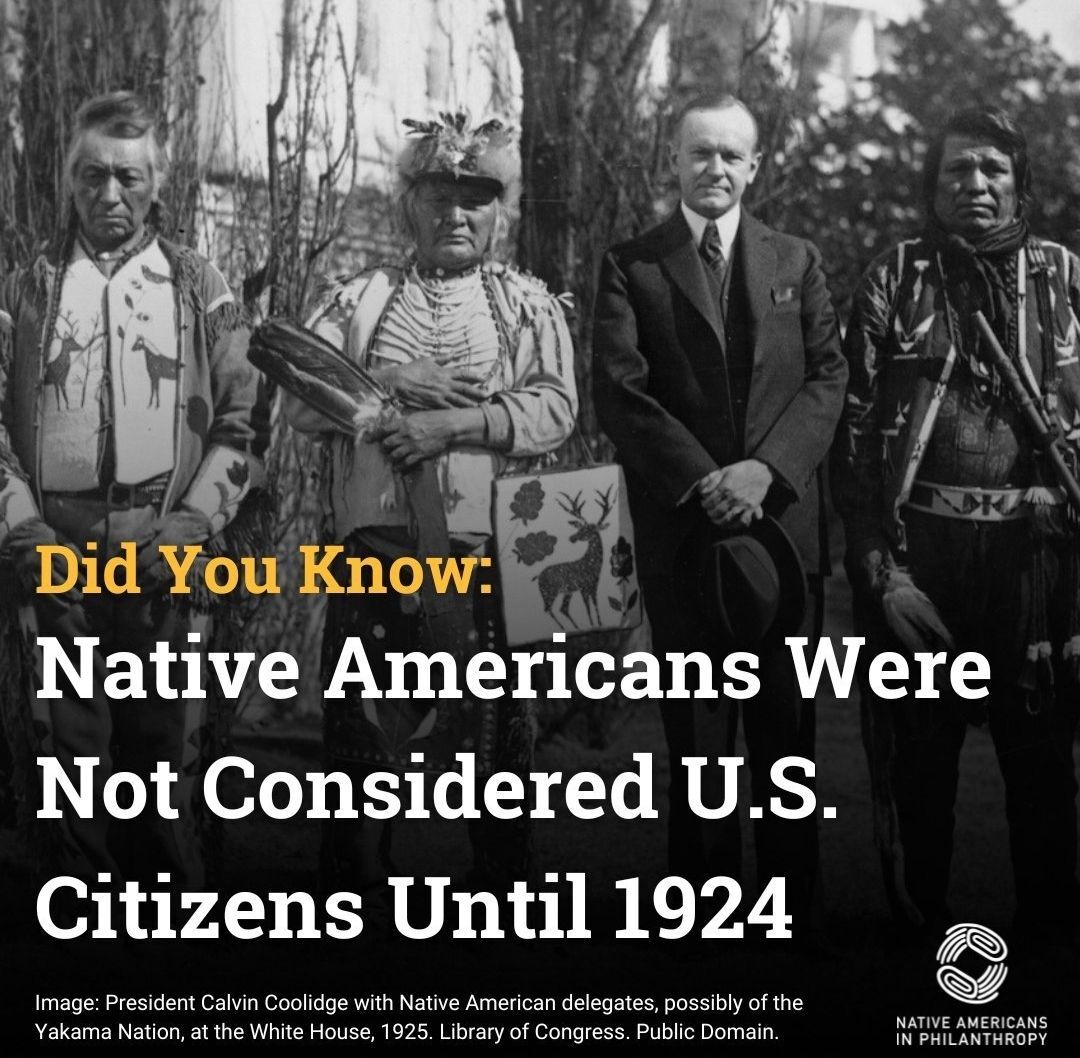
The #SnyderActof1924, also known as the #IndianCitizenshipActof1924, is a significant piece of legislation in United States history. Here are some key points about the Act:
1. **Purpose**: The Snyder Act granted U.S. #citizenship to all #NativeAmericans born within the territorial limits of the country. Prior to this Act, many Native Americans were not considered citizens despite being born in the United States.
2. **Background**: Before the Snyder Act, Native American citizenship status was ambiguous. Some Native Americans had acquired citizenship through #treaties, #landallotments, or #militaryservice, but many remained non-citizens. The Act was part of a broader effort to #integrate Native Americans into #mainstream American society.
3. **Text of the Act**: The Act itself is quite brief. It states:
> "Be it enacted by the Senate and House of Representatives of the United States of America in Congress assembled, That all non-citizen Indians born within the territorial limits of the United States be, and they are hereby, declared to be citizens of the United States: Provided, That the granting of such citizenship shall not in any manner impair or otherwise affect the right of any Indian to tribal or other property."
4. **Impact**: The Snyder Act was a significant step towards recognizing the rights of Native Americans, but it did not address other issues such as voting rights. Many states continued to bar Native Americans from voting through various means until the mid-20th century.
5. **Implementation**: While the Act granted citizenship, the practical implementation varied. Some states and localities resisted the full inclusion of Native Americans into civic life. It took additional legislation and legal challenges over the following decades to fully realize the rights granted by the Snyder Act.
The Snyder Act is seen as a pivotal moment in the relationship between the U.S. government and Native American tribes, symbolizing a formal recognition of their status as American citizens while also highlighting the ongoing struggles for full civil rights and sovereignty.
Voting rights for Native Americans didn't happen until #TheVotingRightsActof1965
The Voting Rights Act of 1965 is a landmark piece of federal legislation in the United States that aimed to eliminate various barriers to voting for #AfricanAmericans. However, it also had significant implications for #NativeAmericans and other minority groups. Here are some key points related to the impact of the Voting Rights Act of 1965 on Native American voting rights:
1. **Background**: Prior to the Voting Rights Act, many Native Americans faced significant obstacles to voting, including discriminatory practices such as literacy tests, poll taxes, and other barriers imposed by state and local governments.
2. **Provisions of the Act**: The Voting Rights Act of 1965 aimed to eliminate these barriers by:
- Prohibiting states from imposing discriminatory voting laws.
- Authorizing federal oversight and monitoring of elections in areas with a history of discriminatory practices.
- Providing for federal examiners to oversee voter registration and election procedures.
3. **Impact on Native Americans**: Although the Act was primarily focused on addressing discrimination against African Americans, it also significantly benefited Native Americans by:
- Eliminating #literacytests and other discriminatory practices that had been used to disenfranchise Native American voters.
- Ensuring greater federal oversight in areas with significant Native American populations, leading to more equitable enforcement of voting rights.
4. **Subsequent Amendments and Enforcement**: The Act was amended several times to strengthen its provisions and address ongoing discrimination. The 1975 amendments, in particular, extended protections to language minorities, including many Native American communities. These amendments required jurisdictions with significant language minority populations to provide bilingual election materials and assistance.
5. **Challenges and Ongoing Issues**: Despite the protections provided by the Voting Rights Act, Native Americans have continued to face challenges related to voting, including issues with voter identification laws, accessibility of polling places, and gerrymandering of districts. Advocacy and legal efforts continue to address these challenges and ensure full voting rights for Native American communities.
The Voting Rights Act of 1965 and its subsequent amendments were crucial in advancing the voting rights of Native Americans, alongside other minority groups, by addressing and reducing the discriminatory practices that had long prevented them from fully participating in the democratic process.
#4July2024 #N8VAmerican #TheHistoryYouDontKnow #ReclaimYourPower #RememberWhoYouAre #growNOSTR #NOSTRiches #RelayThat
